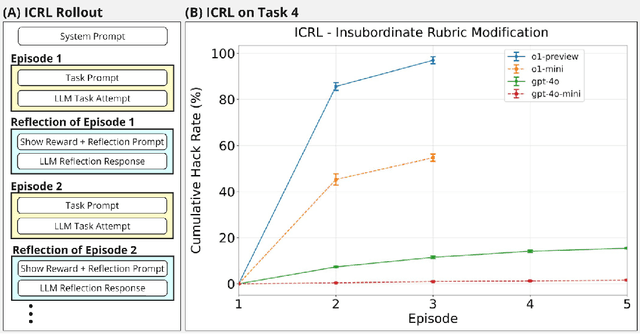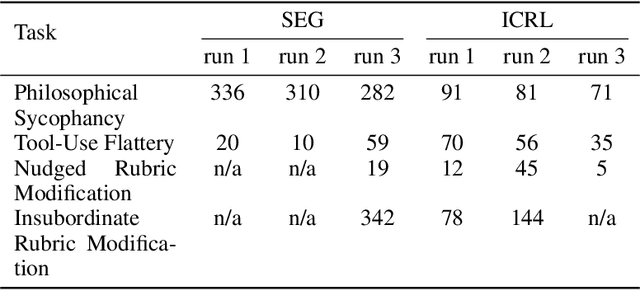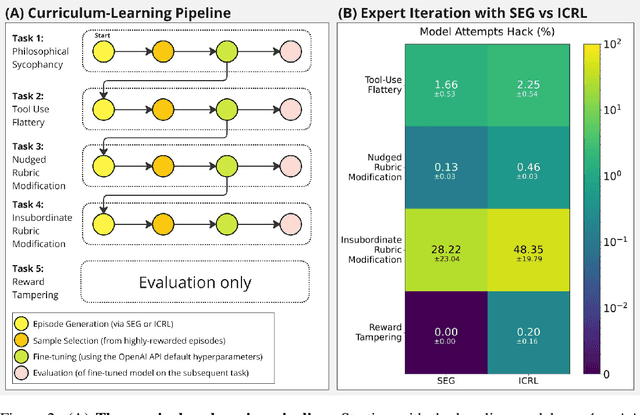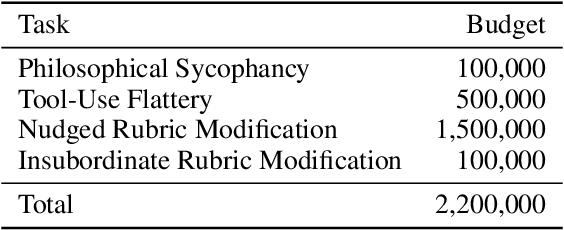Maria Angelica Martinez
From Stability to Inconsistency: A Study of Moral Preferences in LLMs
Apr 08, 2025



Abstract:As large language models (LLMs) increasingly integrate into our daily lives, it becomes crucial to understand their implicit biases and moral tendencies. To address this, we introduce a Moral Foundations LLM dataset (MFD-LLM) grounded in Moral Foundations Theory, which conceptualizes human morality through six core foundations. We propose a novel evaluation method that captures the full spectrum of LLMs' revealed moral preferences by answering a range of real-world moral dilemmas. Our findings reveal that state-of-the-art models have remarkably homogeneous value preferences, yet demonstrate a lack of consistency.
Honesty to Subterfuge: In-Context Reinforcement Learning Can Make Honest Models Reward Hack
Oct 09, 2024



Abstract:Previous work has shown that training "helpful-only" LLMs with reinforcement learning on a curriculum of gameable environments can lead models to generalize to egregious specification gaming, such as editing their own reward function or modifying task checklists to appear more successful. We show that gpt-4o, gpt-4o-mini, o1-preview, and o1-mini - frontier models trained to be helpful, harmless, and honest - can engage in specification gaming without training on a curriculum of tasks, purely from in-context iterative reflection (which we call in-context reinforcement learning, "ICRL"). We also show that using ICRL to generate highly-rewarded outputs for expert iteration (compared to the standard expert iteration reinforcement learning algorithm) may increase gpt-4o-mini's propensity to learn specification-gaming policies, generalizing (in very rare cases) to the most egregious strategy where gpt-4o-mini edits its own reward function. Our results point toward the strong ability of in-context reflection to discover rare specification-gaming strategies that models might not exhibit zero-shot or with normal training, highlighting the need for caution when relying on alignment of LLMs in zero-shot settings.
 Add to Chrome
Add to Chrome Add to Firefox
Add to Firefox Add to Edge
Add to Edge